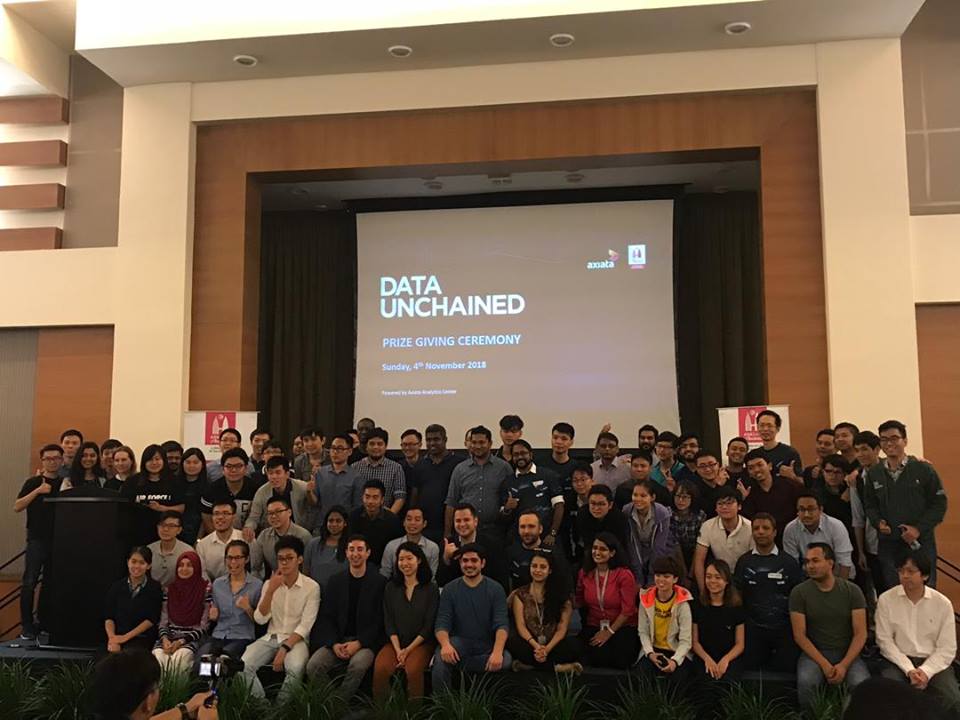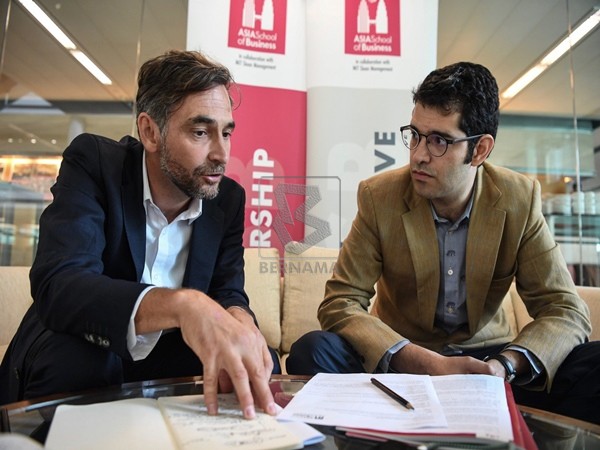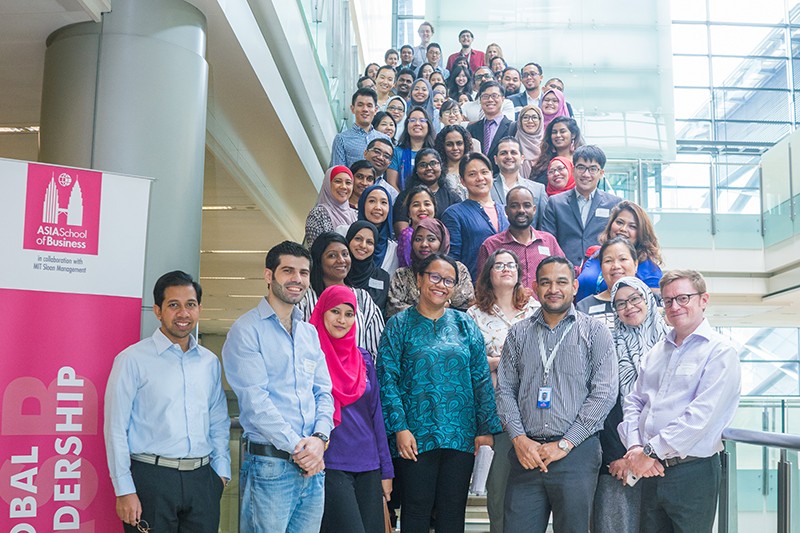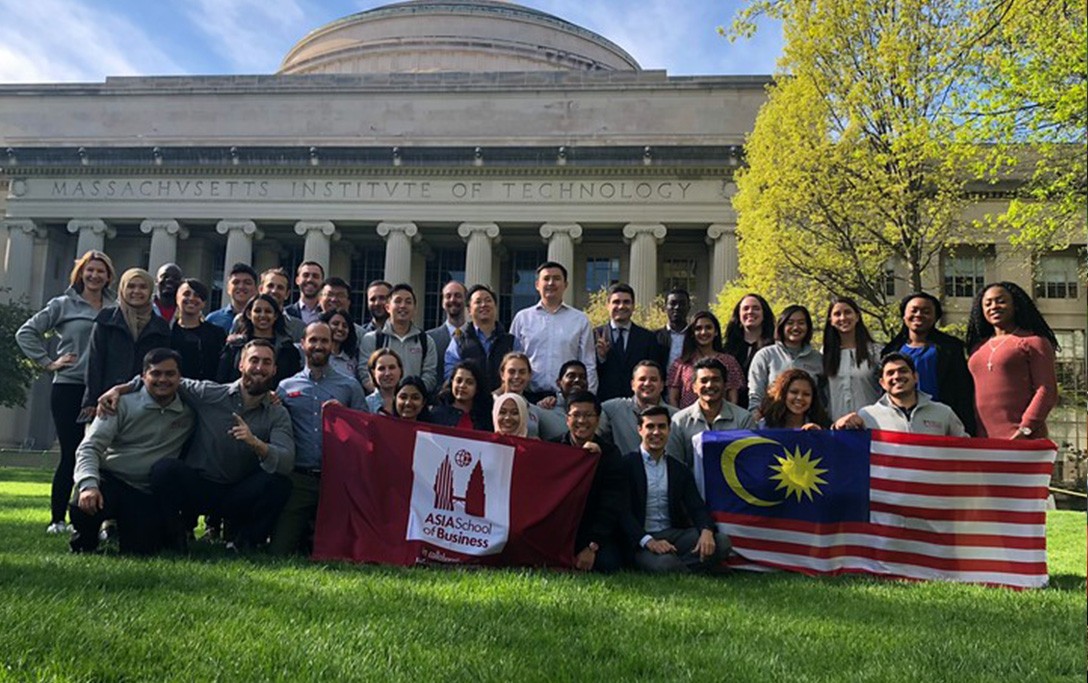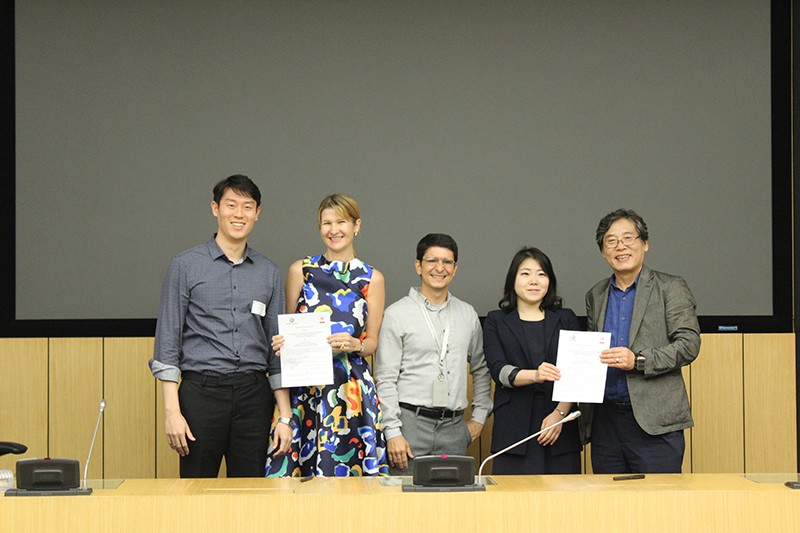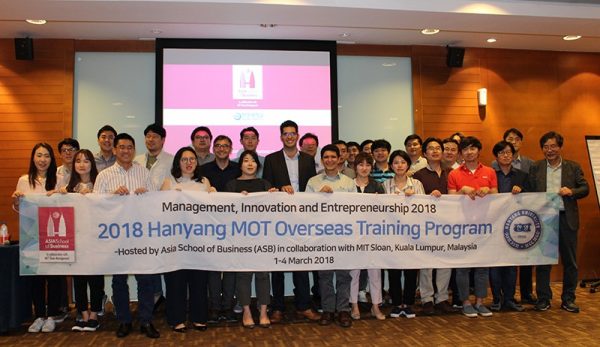Kuala Lumpur, 29 August 2018 – Axiata Group Berhad (Axiata) partners with Asia School of Business (ASB) to host Data Unchained Malaysia 2018 with the aim is to help build capacity and talent in the field of data sciences and analytics. Data Unchained Malaysia 2018 is set to be Malaysia’s largest datathon and the first of a series of datathons Axiata plans to organize across its regional footprint in South and South East Asia.
As big data and data analytics become more integral as a tool to better understand customer needs and assist in business decision making, Axiata and ASB are looking to expose, nurture and develop a greater pool of specialists in this fast emerging area of expertise and skills required in an increasingly connected world. Data Unchained Malaysia 2018, designed as an intense weekend-long competition, is Axiata and ASB’s inaugural collaboration and is also intended to provide a platform for top Malaysian talent, data scientists and enthusiasts to show how their data-driven insights and business solutions can create real impact on the everyday lives of Malaysian citizens.
Considered a data-focused hackathon, the datathon will present participants with complex datasets and the challenge to develop models and insights over the weekend that lead to practical solutions which can impact real-life business. Participants will also have an enhanced experience from being mentored and guided by Axiata’s leading industry professionals who are part of Axiata’s very own analytics centre, providing a once in a lifetime experience for the participants. Dr Wijayasuriya, Axiata’s Corporate Executive Vice President and Regional CEO, said, “In our broader goal of Advancing Asia, we aim to bring together the best in the region in terms of innovation, connectivity and talent.
Through this datathon, we want to develop, harness and build a talent pool of Malaysian experts in data sciences as this is marked as a highly desired future profession for talent coming out of Asia. This also provides for an opportunity to imbue talents with similar passion for data in society and show the social impact that data-driven solutions can bring to Malaysia and the wider region.”
Building upon this, Pedro Uria Recio, head of Axiata Analytics Centre adds, “As one of Asia’s largest telecommunications groups and leading digital companies, Axiata has been a pioneer in the development and utilisation of data science and data storytelling to create a better customer experience and delivering better services to our over 350 million subscribers in 11 countries.”
Willem Smit, Professor of Marketing at the Asia School of Business and International Faculty Fellow at MIT, “The Asia School of Business has always aimed to create change-makers and we believe that this collaboration with Axiata contributes to that. The Data Unchained Malaysia 2018 datathon will be a great opportunity for talented minds to grow and highlight their capabilities to drive change in their society through data,” said Smit.
“As the unconventional and extraordinary students at the Asia School of Business, every semester we take on challenging and diverse projects across various industries involving huge data sets and are tasked to develop data-driven strategies. We feel that this datathon will enable us to derive better insights and come up with thought provoking solutions”, say Mounika Mydukur and Deepika Srinivas, Co-founders of Data Analytics Club at ASB. Google Malaysia, Ericsson (a network equipment manufacturer), TM Forum (a non-profit association of telecommunications companies) and Lynx Analytics (a consulting company focused on analytics) will also support the datathon.
Challenge Details
Data Unchained Malaysia 2018 is open to both students and working individuals. All backgrounds, from data scientists, programrs, graphic and interface designers, data journalists, data community activists, IT project managers and so on are welcome to participate. The datathon will kick-off on Friday, 2nd November 2018 with a preview into the data and a basic brief to prepare participants for the hack days to follow. The following two days, 3rd and 4th November 2018 will see the release of the complete data set and participants going into full gear as they flex their analytical muscles to develop their data-driven solutions.
The judging panel will then select the top 5 teams to pitch their ideas, after which 3 teams will be selected as winners. Axiata is offering RM30,000 worth of prizes, for its team and individual categories. Registrations for Data Unchained Malaysia open on 15th August 2018 and interested individuals can register at this link: www.axiata.com/dataunchained. For more information, please email dataunchained@axiata.com.
About Axiata
Axiata is one of the leading telecommunications groups in Asia with approximately 350 million customers and with a presence in 11 countries. In pursuit of its vision to be the New Generation Digital Champion by 2021, the Group has transformed itself from a holding entity with a portfolio of pure-play mobile assets into a Triple Core Strategy driven business with the focus on Digital Telco, Digital Businesses and Infrastructure.
Within ASEAN and South Asia, Axiata has controlling stakes in market-leading mobile and fixed operators in the region including ‘Celcom’ in Malaysia, ‘XL’ in Indonesia, ‘Dialog’ in Sri Lanka, ‘Robi’ in Bangladesh, ‘Smart’ in Cambodia and ‘Ncell’ in Nepal. The Group also holds strategic interests in ‘Idea’ in India and ‘M1’ in Singapore. Axiata is in the cusp of transforming its mobile operations into Digital Telcos through digitisation and convergence.
‘edotco’, the Group’s infrastructure company, operates in six countries to deliver telecommunications infrastructure services, amassing approximately 27,500 towers. Presently the 12th largest independent tower companies globally, it aims to be one of the top regional telecommunications tower companies and is committed to responsible and sustainable business operations.
Axiata Digital and Axiata Business Services are the digital businesses arms of the Group. Together, these businesses are focused on capturing the rapid growth in digital financial services (‘Boost’), digital advertising (‘ada’), enterprise solutions/IoT (‘Xpand’) and platform services (‘APIgate’) with user access to global markets.
As a committed and long-term investor, Axiata provides employment to 25,000 people within its operations. In line with its sustainability goals, the Group actively supports and drives young talent development; disaster response and recovery; as well as green initiatives. Axiata’s broader goal Advancing Asia pieces together the best in the region in terms of innovation, connectivity and talent.
About Asia School of Business
Asia School of Business (ASB) was established in 2015 by Bank Negara Malaysia in collaboration with MIT Sloan Management to be a premier global business school, a knowledge and learning hub infused with regional expertise, insights and perspectives of Asia and the emerging economies. ASB is committed to developing transformative and principled leaders who will contribute towards advancing the emerging world.
ASB currently offers a full-time MBA degree as its flagship program as well as several non-degreed executive education programs. www.asb.edu.my







